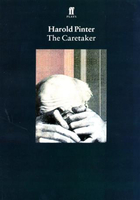Tired.
Flat-out, bone-weary tired.
That's how Marsha Molloy was feeling, eight years into a sales career that was losing steam fast.
A successful medical-supply sales representative whose nickname in her salad days was “Marsha Money,” she had hit hard times, laid low by a tough economy and a declining interest in the profession she had embraced since starting out as a catalog sales rep right out of high school. The once-hungry top producer had seemingly lost her touch and grown indifferent to a sales culture that appeared to value faxes, e-mails, and cell phone chats instead of the relationship building that had been her forte. Worse, she'd lost her passion for the sales business and forgotten the reasons why she'd entered the business in the first place: the face-to-face interaction, the thrill of closing a deal, the satisfaction of building long-term relationships.
It was a strange feeling for someone who had always felt at home in the sales world, Marsha thought.
After all, she had the classic sales background, didn't she? She had started in grade school, selling candies door-to-door, buying them for a quarter and selling them for 50 cents to kids who had allowance money that was burning a hole in their pockets. She became more involved in sales in high school, where she took a part-time job after school selling baby pictures to proud parents—especially mothers—in her town. She learned, through trial and error, that she could package the pictures in such a way that people usually purchased the set she wanted them to buy. By asking a proud mom whether she wanted the bargain package or the value package, she found that the mom would usually opt for the more expensive value package. Nobody wanted to skimp on her baby pictures, and Marsha learned that people buy on emotions.
Sales Seeds
Prices matter, but what it really comes down to is emotions and relationships. They are the currencies of healthy sales.
EVERYTHING I NEED TO KNOW ABOUT SALES
She dabbled in sales all through college, selling tiedyed shirts to fellow students on the campus concourse at the University of Massachusetts and later marketing “Florida Break” spring vacations for a local travel agent, who gave Marsha 50 percent of the cut for bringing her the business.
After college she went right to work selling ad time for a big-city radio station and later switched to medical-supply sales when a key customer moved to that field and made her an offer she couldn't refuse. There she learned the art of sales—the importance of developing a network of contacts that could, like her travel agent boss, bring her business. She learned how to keep herself sharp with cold calls, but cold calls proved inefficient compared with building a network of trusted customers over time. She trained herself to focus on developing healthy, long-lasting customer relationships. After all, those accounts made up 85 percent of her sales. Marsha found that even in tough times when customers were buying less, it was the sales representative with the best contacts and the best relationships—and not the quick-hit artist— who survived and thrived.
Before long, Marsha had forged for herself a six-figure annual income, was taking plenty of trips to exotic ports of call for exceeding her quotas, and even found time to have a reasonable home and social life. For the next several years, she was on cloud nine.
But that was then and this is now, she thought. Fatigue, restlessness, and a vague sense of unhappiness had slowly enveloped her in recent months. She'd tried to talk to her husband, and then her boss, about her fatigue. She told both that she was burned out: she dreaded going to work in the morning, and making her calls and traveling through her territory— a weekly practice she'd always found enjoyable— now felt like drudgery. She had even begun feeling cynical about her boss and her company, something she dared not tell anybody. Boxed in, Marsha started to feel as if there was no hope—that she was in it for the money and couldn't make nearly as much doing anything else.
Sales Seeds
You can't sell when you're tired, frustrated, depressed, or unhappy. You've got to make a change.
EVERYTHING I NEED TO KNOW ABOUT SALES
Frustrated and confused, Marsha thought about her future as she drove to her favorite garden store on a brisk Saturday morning in early April. A gardening buff on weekends, Marsha couldn't wait to pick out some seeds, buy some new gloves, and get back to the small patch of land behind her house, where every spring she'd planted something different. Working in her garden calmed her and gave her peace of mind—and she missed it during those barren wintry months when she couldn't get out there. Driving up the road to the nursery, tires crunching on the gravel, Marsha forgot about her career woes for the moment and headed into the parking lot.
Gently maneuvering her old Ford pickup truck into a space, she noticed something odd. Instead of “Wayland Nurseries,” the sign out front read in bold blue letters, “Rawlings Garden Supply.”
Confused and a tad agitated that her favorite nursery had apparently changed hands, Marsha stepped out of the truck and jogged up the cobblestone walk to the entrance in her brand-new Reeboks, an impulse purchase she'd made earlier in the week to brighten her mood. It hadn't.
She opened the door and stepped inside.
She immediately noticed that the store had changed. Instead of narrow paths between cluttered rows of seed racks, pots, plants, and garden utensils, there were wide aisles on a shiny hardwood floor. The walls had been knocked down and replaced with huge picture windows that gave the refurbished store a calm aura. Huge shafts of sunlight streamed into the store, bathing the room in warm, golden tones. Marsha didn't know who the new proprietor was, but she was impressed by what he—or she—had done to the place.
“Can I help you, Miss?”
Marsha turned around to see a tall, affable-looking man with a head of closely cropped silver hair and a bronzed, weathered face. He leaned over the counter, absentmindedly brushing some dust off the cash register.
“Mmm, yes,” Marsha answered. “Planting time, you know. Going to need some seeds, some compost, and maybe a new trowel. That time of year again.” She paused, fidgeting a bit. “Mind if I ask you a question?”
The man suppressed a grin. “You want to know who this newcomer is who's running your favorite garden shop—am I right?”
Marsha relaxed a bit. “Well, I was kind of wondering.”
The man extended a big, strong hand. “The name's Rawlings. Bob Rawlings. Three years retired from Pharson International. Been a salesman my whole life. Been a gardener my whole life, too—just like you, I bet. When Wayland Nurseries' owners put the place up for sale, I grabbed it. It's always been a dream of mine to run my own garden shop. And now … here I am.”
Marsha shook his hand.“ Marsha Molloy—a pleasure to meet you. Sales, you say?”
“Yep,” replied Rawlings. “Thirty-five years in medical supplies. Lots of ups and downs, but mostly ups. I still do a little consulting on the side for the company, but only about three or four days a quarter. You know—working the shows and seminars, things like that.”
Almost immediately, Marsha felt more relaxed in Rawlings' presence. Funny that he had been in sales— medical sales, no less—and loved gardening, too, she thought. “Yes, I know the drill,” she said, looking over the brightly lit racks containing packets of rutabaga, carrot, and other seeds along the first aisle. “But thirty-five years, though—didn't you ever get tired of it, Mr. Rawlings? I've been in sales for eight years and I'm getting sick and tired of it already.”
“Call me ‘Gardener.’ All my friends do,” he said.
“OK, Gardener,” Marsha replied. She looked around the store to see if anyone else was there. The place was empty. “But … if you don't mind my asking, did you ever lose interest in your career? You know, did you feel burned out a bit from all the pressures and deadlines and quotas?”
“Yeah, sure,” Gardener replied, chuckling to himself. Boy, had he ever.
Yes, he was a former sales professional. In fact, in opening his garden store he was able to combine his two favorite passions, sales and gardening. It was no coincidence that Rawlings (whose nickname during his career had been “The Gardener” because of his penchant for comparing sales to gardening) was able to merge the characteristics of a good gardener— patience, the ability to nurture, and good timing— into his sales career.
But he'd seen plenty of tough times. Gardener recalled a period twenty years earlier when the grass had looked a whole lot greener everywhere else but inside his sales territory. His customer list was shrinking, phone calls were going unreturned, and his career was in the doldrums. But he discovered what he considered to be a well-kept secret in the trade that few had figured out. Tending his tomato patch on summer mornings, Gardener reflected on how the process of producing his beloved vegetables was a lot like his sales career. You planted seeds, nurtured their growth, and protected them from the elements. In turn, you received a big reward come harvest time. A simple theory, yes, but a practical and highly effective one, too, he'd found. Once he began treating his business like his garden, he found, the better his business grew and the simpler his life became—and a happier, more relaxed salesman appeared. Using a gardening philosophy based on a four-step model he developed, Gardener fought his way out of his sales slump and learned a few things in the process.
Gardener moved around the counter to readjust some compost bags that had keeled over. “You know, Ms. Molloy, I remember a few times when I thought I wanted to chuck the whole thing and do something entirely different. But luxuries like food and shelter forced me to deal with my growing disinterest, for lack of a better term, in sales and in my career. I'd wager that you might be feeling some of the same, ah, pressures that I did. Am I right?”
Sales Seeds
Envision your sales career as a garden— tend it, water it, and enjoy it, and you will reap the fruits of your labor.
EVERYTHING I NEED TO KNOW ABOUT SALES
“Yeah, some of that applies to me.” She had to laugh at the unstated irony—hard to turn your back on food and shelter, she thought. Marsha also noticed that Gardener had a deep, soothing voice, like that of a late-night FM talk show host. It put her further at ease. “You don't mind my prying, do you?” Marsha asked. “My husband always teases me about my poking my nose into things. I don't want to be a bother.”
Gardener laughed. “Heck, no. A fellow sales pro— and a gardening buff—in my store? That's a treat for me,” he said.
Taking a deep breath, Marsha decided to open up to her new friend. She saw something in Gardener that said he liked helping people. Besides, the way things had been going lately, what did she have to lose?
She began telling Gardener her story. Her dissatisfaction with her job and her career hadn't happened overnight, Marsha began. If she could point to one thing, it may have been losing a big equipment purchase at one of her top accounts. She had thought she had it sewn up because of her ongoing relationship with one of the key decision makers. Unfortunately, someone higher up in the organization had intervened and given the deal—worth a very healthy commission— to one of her least favorite competitors. Since the economy had gone pretty flat, causing her company to make changes in her territory and commission structure, Marsha found herself thinking about getting out of the business, away from the rat race; maybe she'd start doing something fun, like running a garden shop similar to Gardener's.
At no point, Marsha told Gardener, had she felt depressed or anything like that. But the sense that she was at or near the end of her rope, careerwise, was strong. Mostly she kept her feelings to herself, but once in a while she let something slip to her husband or to a trusted coworker about how hard the business had gotten for her. About how difficult it was to get motivated to pick up the phone and cut another deal. She was tired, physically and emotionally. She knew that sooner or later her managers and customers would pick up on it. Above all, a sense of resignation had settled down over her like a fog. Dispirited, she was at a loss as to what to do about it. All Marsha knew was that something would have to give—and soon.
“Why do you suppose you're so anxious and frustrated?” Gardener asked.
Marsha immediately thought about her sense of loneliness. “I feel like I'm on an island by myself,” she said.“Don't get me wrong—my husband is wonderful. But he's not in sales and really doesn't understand the pressures of the sales profession—the quotas, the deadlines, the rejection.” Immediately, she felt better for having simply told someone what was bothering her.
“Looks to me that you could use some help,” Gar- dener said. “And I hope I'm not being too forward in saying so.”
Marsha sighed. “I don't know, it just seems like everything is such a drag these days. I'm just going through the motions.”
Gardener nodded. He knew exactly what she meant. “Tell me, Marsha, what was it like when you were doing really well?”
“Wow, those were some good times,” she answered. “I was psyched to go to work every morning … the days flew by … every call was an adventure, even the tough ones. I really liked the challenge of solving the tough customer problems, doing little things for my accounts. I came home exhausted but happy.”
Gardener laughed. “Sounds like you were having F-U-N?”
“Well, yeah, I guess so,” she said reflectively. “I didn't think about it that way at the time; I was so focused on the quotas and sales contests and my commission checks. But you're right—I was having a blast!”
“And you're saying it's definitely not fun for you anymore?”
Marsha realized that his remark was on target. “Yeah, somewhere along the way I lost the passion for sales … lost the fun.”
Gardener ran his fingers through his short shock of hair. “Well, one thing's for sure—you have to get the fun back in, or get out.”
Marsha grimaced. “Hmmm. That seems a bit extreme; the money's still better than I can make anywhere else. And as you said, little luxuries like food and shelter, right?”
Gardener chuckled. “Yep, well, we can chat some more about that. But first, let me ask you something. Would you be here today if you didn't find gardening to be fun?”
“Hmmm, point well taken!”
Gardener continued. “Good. But the first thing you have to do is not blame yourself,” he said, dusting off his hands with a clean towel now that the bags of compost were back in their rightful place. “You've got to realize that this burnout crisis of yours is a turning point, above all else. You didn't see it coming—none of us ever do—so you didn't have a plan to deal with it. But that doesn't mean you shouldn't come up with a plan. A plan is your ticket out, back to a healthy level of happiness.”
Marsha thought about that. “It's funny you should mention the turning-point thing. I didn't see it coming. But then again, I've always been very proactive about handling change. Except for now. It's like I should have seen this coming but I didn't, you know?”
Sales Seeds
Great salespeople know how to take care of themselves, they have a plan, and they anticipate the unexpected.
EVERYTHING I NEED TO KNOW ABOUT SALES
The door opened and another customer walked into the shop. After cheerfully pointing the customer toward the garden-tools aisle, Gardener turned back to Marsha. “Careers are cyclical,” he said. “Things go well for a while, and we like the direction our careers are taking us. We think that's always going to be the case. But then something happens—and it has a trigger effect that can lead you into a downward spiral. It can be problems with a boss, or the loss of a big customer. Or, on the home front, it could be problems with your marriage or with the loss of a loved one. On their own, such problems can be managed over time. But if a domino effect kicks in and one problem leads to another, it's difficult to maintain your balance. Sooner or later, things start getting the better of you and your defense mechanisms break down. Before you know it, you think the world is conspiring against you or that you're no good at what you do anymore. And for a salesperson, self-doubt can be a real career-killer.”
Marsha nodded. “I think I see what you mean,” she said. “So when we hit one of these turning points, we sense that we're losing control of who we are and who we want to be. We've lost our ability to grow and to flourish.”
“Exactly.” Gardener replied. “It's like a garden, when you think about it. We plant a seed, nurture the plant, and harvest when the time is right. But if a calamity occurs, like a drought or a particularly rough storm, we lose control over the plant's ability to grow. Its destiny is out of our control, isn't it?”
“Yes,” Marsha answered. “And the strange thing is, when you're feeling down, you think you'll always feel that way. Or if we look into the future, we don't like what we see. Just like when you plant some fruits or vegetables and a storm or a drought hits. You know you're not going to like the outcome.”
She thought on that a bit as the other customer in the store hauled a few bags of potting soil and a shovel to the counter. She waited until after he left before continuing. “But even if that's the case, why am I so down about this? I just can't seem to get myself pumped up anymore.”
“Well, now we're getting into deeper waters,” Gardener said. “But I suspect the answer lies in the gardening analogy we were talking about, and maybe in not being so alone, trying to fight this by yourself.” He sidled over to the seed section and took a few packets off the rack. “I've got an idea,” he said. “If you're up for it, I think I can show you how to put your career back on track by treating your sales career like you would your own garden. We can go week to week, through the planting season all the way to harvesting. Along the way I can tell you what I've learned about tending a sales garden, so to speak, and how well it worked out for me. I've been fortunate enough to help some other people with problems similar to yours since I retired. These folks come in on Saturdays, too—we call it the ‘Saturday Morning Sales Club.’ All of them are in sales, and all have suffered from the low-energy burnout thing you're experiencing. Maybe we can all help you out. Interested?”
Marsha chewed her lower lip in thought. “I admit, it sounds great, but why help me? You don't even know me.”
“Well, I didn't know you twenty minutes ago, that's true,” Gardener answered. “But I know you better now. Besides, it wouldn't be very gentlemanly of me—or good business—not to take the time to help out a new customer. And maybe it's time for you to sprout—you know, grow in some new ways. So bring yourself around next Saturday, 9 a.m. or so, and we'll start right in.”
He took the packets of seed and placed them on the counter.
Surprised, Marsha noticed that the seeds—lettuce, carrots, and radishes—were exactly what she wanted to plant. “Now how did you know what seeds I was looking to buy?” she asked.
“In all modesty,” he replied, “they don't call me Gardener for nothing.”
Marsha Molloy laughed, much deeper than she had in some time. “OK,” she said. “See you next Saturday.”
Gardening Time
The Next Morning
Gardening time can happen anywhere. It is a state of mind when one reflects on present events and plans for the future.
It was 7 a.m. on Sunday, and Marsha was up and hitting it with her new garden supplies. “Wow, this is such a great feeling,” she thought. “I love this time of year … still a chill in the air, but so much promise!” She had tilled and readied the soil in her garden, and now it was time for her to begin planting the seeds she had bought the day before at Rawlings. The garden plan was all laid out, so now came the fun part—getting down into the dirt! “If only I felt this excited about going to see customers every day … ”
The thought stopped her in her tracks. Hadn't she had that kind of excitement about her sales career just a couple of years ago? And wasn't this sense of energy exactly what she and Rawlings were talking about yesterday?
As she began to sow her seeds, she laughed out loud. Treating your business as you do your garden? That was a weird way to look at things … but it seemed to work for Rawlings. He still had more energy and passion for what he did than most of her counterparts.
Her natural inclination was to take all this with a grain of salt, but it surely seemed to work for Gardener—he had a long, successful career at Johnson & Johnson, and now he was living his dream, spending all his time helping folks grow better gardens. Plus, she'd be meeting some new people, hearing about their experiences … maybe talking with these people would be fun. “Well,” she thought, “let's go down next Saturday and see what unfolds.” Il_9781605092836_0031_001















